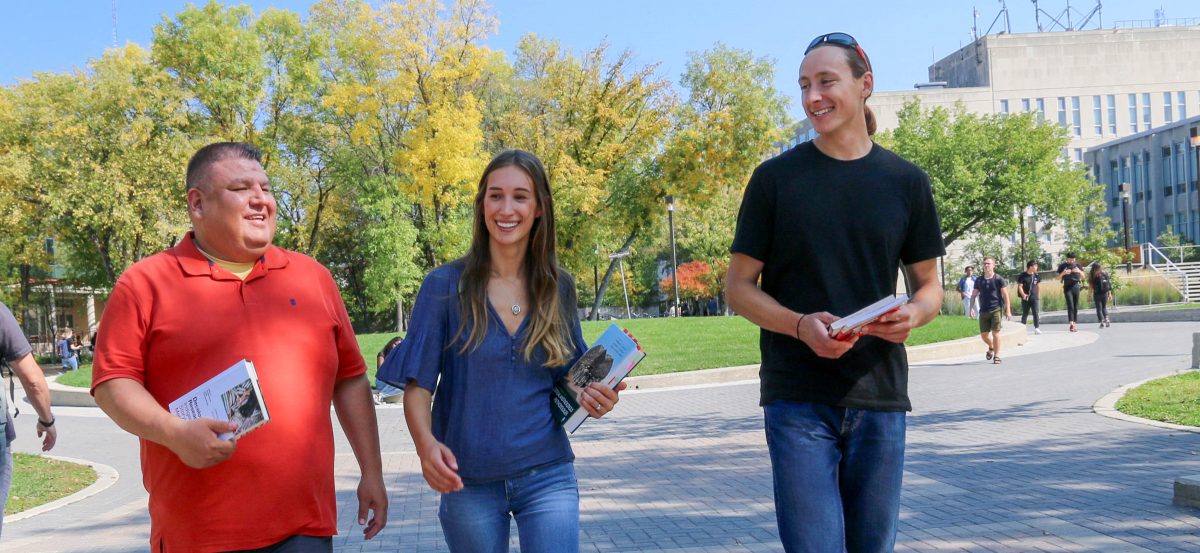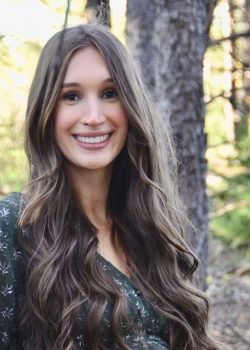
Meaningful change comes from collective efforts
Bree Cruise is driving forward the faculty's Reconciliation Action Plan
June is National Indigenous History Month. This month, FKRM is celebrating, learning and acknowledging the achievements, stories and resilience of First Nations, Inuit and Métis students and staff within our faculty.
Bree Cruise hopes that during Indigenous History Month, people will want to learn. She says June is only one of twelve months in which she believes learning about Indigenous history and culture should happen.
“Learning can happen all times of the year, any time of the day,” says Cruise. “We need to continue this learning every month of every year.”

Bree Cruise is the lead for Indigenous achievement and outreach in the Faculty of Kinesiology and Recreation Management.
Cruise, the Faculty of Kinesiology and Recreation Management’s lead for Indigenous achievement and outreach, says Indigenous History Month links to the Truth and Reconciliation Commission of Canada: Calls to Actions, including Call to Action 87, which states, “We call upon all levels of government, in collaboration with Aboriginal peoples, sports halls of fame, and other relevant organizations, to provide public education that tells the national story of Aboriginal athletes in history” (p.10).
“We want to talk about everything that is our history and everything that we are as Indigenous people,” says Cruise. “We have a strong history as leaders, advocates, and trailblazers.”
While Cruise says the month is a necessary time to reflect on the history of Indigenous peoples in Canada, it’s also an opportunity to look toward the future.
Cruise has been around the faculty since 2012, having completed her Bachelor of Recreation Management and Development in 2017 before returning to UM to complete her Master’s in 2020. She says seeing the faculty and broader UM community strive for more Indigenous engagement has been amazing.
“We’re pushing this conversation further and further every day,” says Cruise. “Every day, we work for Indigenous engagement and cultural integration in our faculty.”
Cruise praises the faculty’s changes in curriculum, program reviews and open conversations, which reflect the drive for more Indigenous engagement. She also noted the impact Angie Bruce, Vice-President (Indigenous), and her office have on the greater UM community with initiatives like the Indigenous Senior Leadership Report.
“We are learning so much from our Indigenous Elders, knowledge keepers, and leaders here on campus and they’re guiding us in this journey,” says Cruise.
However, Cruise says it’s important to find ways to advance engagement without solely putting it on the shoulders of our Indigenous community. She says meaningful change will only come through the collective efforts of Indigenous and non-Indigenous Peoples.
“We need to continue this important work,” says Cruise. “But reconciliation isn’t an endpoint. It’s a process and a journey. We will be on this road together forever, so how do we continue to walk forward together?”
However, at the moment, Cruise is happy to celebrate Indigenous History Month among the faculty and across campus. She has organized events for the faculty to participate in, such as Indigenous games, a Le Musée de Saint-Boniface Museum tour, and a screening of the film Precious Leader Woman about snowboarder and Olympian Spencer O’Brien’s journey to find her identity.
In the future, Cruise is looking forward to releasing the faculty’s reconciliation action plan with a clear framework to operationalize it so it can be a sustainable priority for the faculty. Her goal is that these priorities are embedded into all the faculty’s positions and in everything they do.






